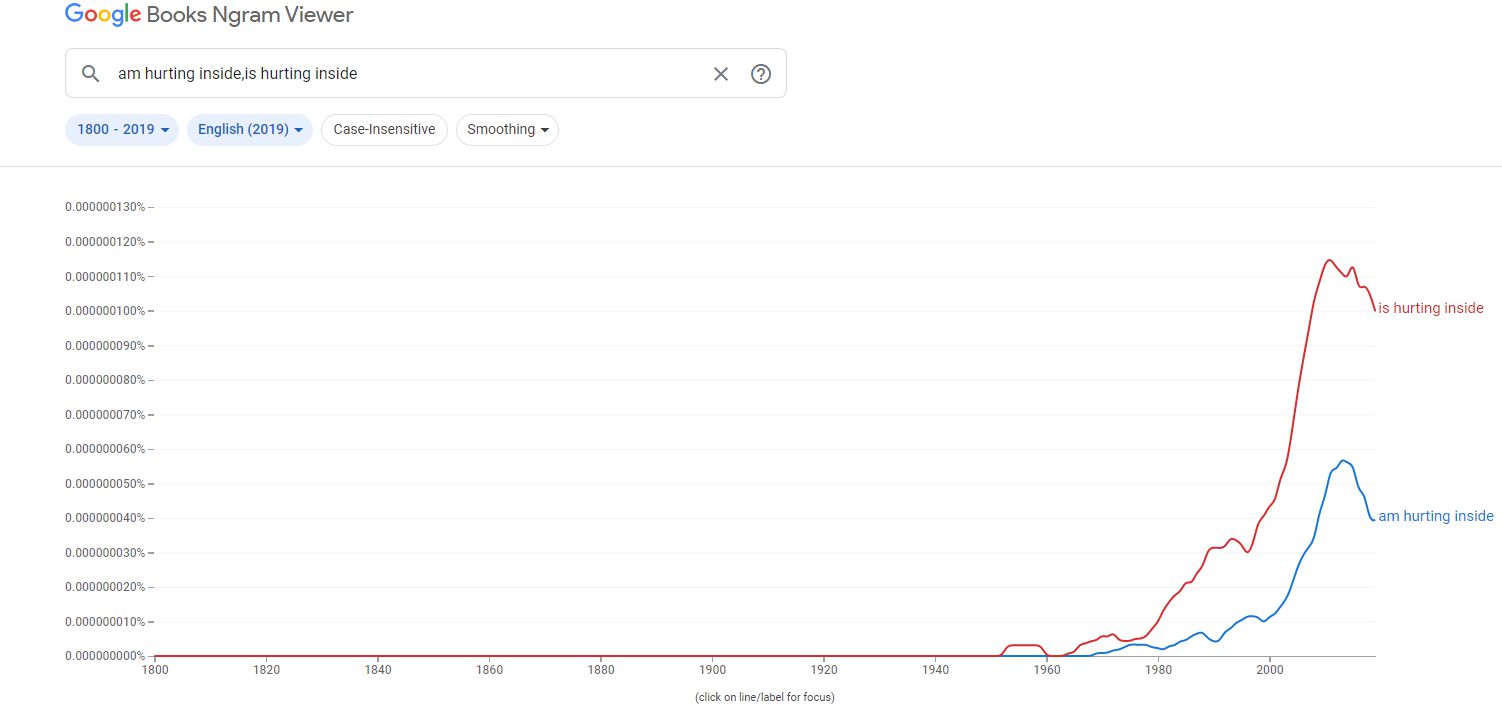I have a questing about the (modern) usage of the verb "hurt". I have learned and always understood that if you have incurred an injury or you are in pain, the correct phrase is: "I am hurt". This phrase can also be used in a psychological sense, for example when someone has insulted you.
Nowadays, when I watch American films or programs on the television, I notice that many people say: "I am hurting". I find this surprising and amusing. Because it seems to me that "I am hurting" literally means "I am causing pain", which is obviously not the intended meaning.
I wonder if this is modern (American) usage of the verb "hurt". Is it considered correct? Or is it a slang/street phrase used by lower-educated people, frowned upon by higher-educated people?

